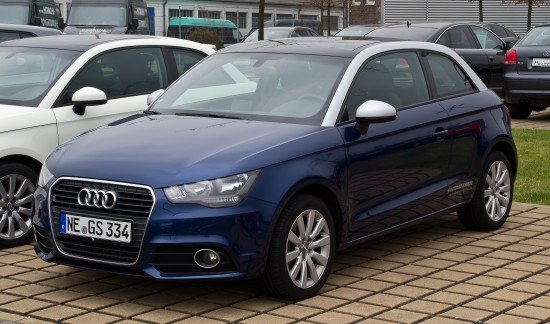2 Views
Audi CEO: Don't Count On Quick European Recovery
by
TTAC Staff
(IC: employee)
Published: October 29th, 2013
Share
A bit of bad news from the Continent: Audi CEO Rupert Stadler is cautioning that Western Europe’s auto market will not recover before the end of the decade.
Stadler’s comments came at a conference of automotive executives, and were far bleaker than previous projections. Europe is still burdened with significant overcapacity, with factories capable of producing 26 million vehicles a year, or 7 million more than necessary. Matching supply with demand would require 18 plants to be closed across Europe, resulting in massive job losses. Shutting car factories is a politically untenable situation in many countries due to their economic significance.
TTAC Staff
More by TTAC Staff
Published October 29th, 2013 11:47 AM


































Comments
Join the conversation
That Audi looks quite cheap with the grey pillars. I'm glad they don't look like that here in the US. This article goes against the big proclamation article from the other day on here, "Euro slump over, September sales show improvement," or whatever that drivel was titled.
They should temporarily shift to a more US-style system: Fewer model variants at a lower price. Reduce the customization and bring the sticker prices down 10%+. Once the economy recovers, move back to the traditional model. Europeans pay a good bit more for their cars (as a percentage of income) than Americans, and that's a large part of it. Obviously VAT is another major element, which would require some concessions from the taxing authorities, but a more inventory-based distribution model (vs customized) might alleviate the numbers a bit. I've always been amazed -- and a bit envious -- about how US version might only have 5-10 possible combinations of configurations, while Europeans might have up to 100+ for the same car. That variety isn't cheap.
Europe is a bunch of old people with jobs that they can never be fired from, with massive pensions, parasitically attacking any young person willing to work. With young people forced into contract jobs because nobody in Europe is going to be stupid enough to hire new workers full time when full time workers can never be fired or laid-off. And those that can find work are undermined by regressive VAT taxes. No wonder young people tune out and become anarchists. Europe has the bad traits of the US (way too many redundant people overpaid to work for the government, if they are lucky enough to be more equal pigs), but magnified. Europe needs to liberalize (in the classic sense) its economies if it wants to compete. No impediments to firing or laying off workers, right to work statutes, defined contribution retirement, not defined benefits. Despite being a wealthy, high wage country the US is a manufacturing powerhouse because of its liberal (in the classic sense) economic policies.